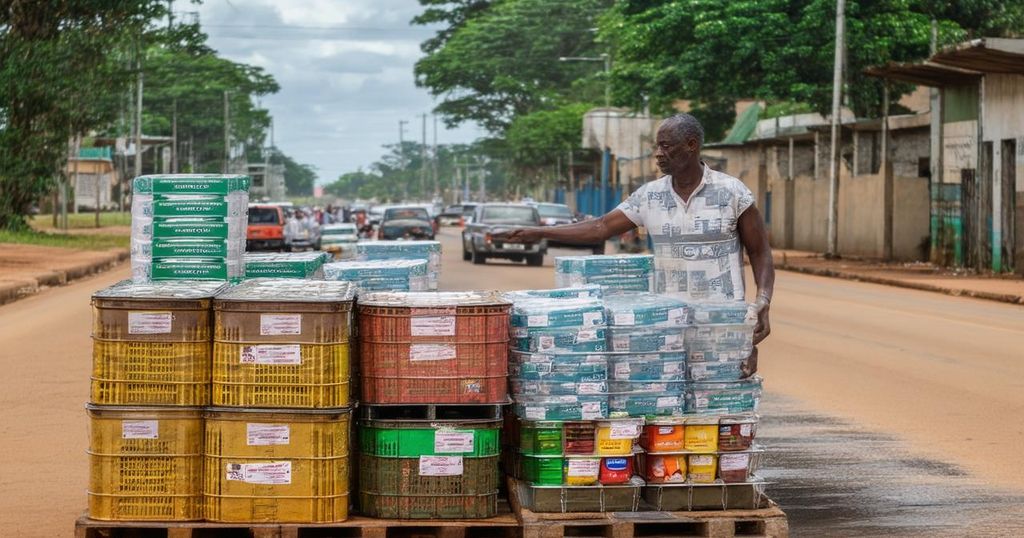Mozambique’s ruling Frelimo party has declared Daniel Chapo the winner of the presidential election with over 70 percent of the vote, despite allegations of electoral fraud from the opposition. Key opposition candidate Venancio Mondlane, who claims to have won, has called for protests against Frelimo’s extended rule. The election’s integrity has come under scrutiny amidst reports of violence against opposition officials and restricted monitoring of polling station results.
The National Election Commission (CNE) of Mozambique has announced that Daniel Chapo, the presidential candidate from the ruling Frelimo party, has emerged victorious in the recent presidential election, obtaining over 70 percent of the vote. This declaration, however, has been met with strong opposition, as allegations of electoral fraud have surfaced. Chapo’s main rival, Venancio Mondlane, an independent candidate, finished in second place with more than 20 percent of the votes, while Ossufo Momade, representing the opposition party Renamo, secured just over 5 percent. Frelimo, which has been in power since Mozambique’s independence from Portugal in 1975, continues to face criticism regarding its electoral practices. The longevity of Frelimo’s rule has been marked by a history of conflict, including a protracted civil war against the Renamo movement. Chapo, aged 47, is set to become Mozambique’s first president born after the country gained independence, officially taking office in January. Controversially, Mondlane has proclaimed his winning of the election, alleging extensive irregularities and manipulation that favored Frelimo, particularly as tensions escalated following the killing of two opposition officials prior to the elections. In response to his claims, Mondlane has urged citizens to mobilize for protests against what he describes as Frelimo’s prolonged dominance, asserting that “The time has come for the people to take power and say that we now want to change the history of this country.” Concerns around the electoral process have been echoed by the European Union’s observer mission, which reported serious issues, including restricted access for observers to monitoring vote counting and instances of result tampering at various polling stations. Opposition figures have carried forward their accusations of fraud and manipulation since the day of the election, underscoring a deeply divided political atmosphere in Mozambique.
The political landscape in Mozambique is largely shaped by the long-standing influence of the Frelimo party, which has dominated since the nation achieved independence in 1975. The party’s governance has been characterized by allegations of electoral manipulation, particularly during elections. Following a brutal civil war with the Renamo opposition, which emerged as a significant political force, Frelimo has maintained its grip on power through multiple elections, often met with accusations of fraud from opponents. This election cycle has been particularly tumultuous, exacerbated by violence against opposition figures and protests from supporters disputing the credibility of the results.
The recent declaration of Daniel Chapo as the winner of Mozambique’s presidential election amidst claims of electoral fraud has intensified the political crisis in the nation. Allegations from the opposition regarding rigging, combined with pre-election violence, highlight the ongoing challenges to democratic processes in Mozambique. As the country prepares for Chapo’s presidency in January, the tension between Frelimo and opposition parties continues to escalate, raising questions about the integrity of the electoral system and the future of governance in Mozambique.
Original Source: www.aljazeera.com






